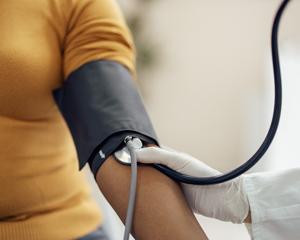-
Patient Information
-
-
Patient Information
-
-
- Services
Proudly Part of Privia Health

The Link Between Menopause and Dry Eye
Is Menopause to Blame for Your Dry Eye?
Hot flashes, dry and itchy skin, weight gain, and mood swings aren't the only issues women face during menopause. Changing hormone levels may also cause your eyes to become dry and irritated.
Why Does Dry Eye Occur?
Dry eye happens due to problems with tear quantity, production, or quality. Your tear film lubricates your eyes, removes debris, and keeps your vision clear. Tears are made up of mucus, oil, and aqueous fluid, three substances that work together to keep your eyes moist and comfortable.
Although everyone's eyes become dryer as they age, the problem is particularly common in older women. In an Indian study published in The Tropical Journal of Ophthalmology and Otolaryngology, 52 percent of post-menopausal women suffered from dry eye.
In addition to dryness, symptoms of the condition include:
- Itching
- Burning
- Redness
- Watery eyes
- Blurry vision
- Stringy discharge
- Sensitivity to light
- Gritty sensation or a feeling that something is stuck in your eye
Dry eye may make wearing contact lenses uncomfortable, even if you've been wearing them without problems for years. Dryness increases your risk of corneal abrasions, painful scratches on the clear layer of tissue that covers your iris and pupil. Corneal ulcers, open sores on your cornea, can also happen if your eye isn't moist enough. Without prompt treatment, corneal ulcers may damage your vision.
How Hormonal Changes Cause Dry Eye
Hormones control many functions in your body, including sleep/wake cycles, growth, heart rate, energy production, and breathing. Estrogen, progesterone, and androgens, hormones commonly called "sex hormones," make reproduction possible and also affect your cholesterol level, bone and muscle health, mood, and metabolism, in addition to keeping your eyes well lubricated.
During peri-menopause, sex hormone levels begin to drop. When you no longer have periods, your body stops making progesterone, while the production of estrogen and androgens, including testosterone, decreases dramatically.
When sex hormones decrease, these changes happen:
- Tears evaporate too quickly
- The oil-producing glands make less oil
- Your tears don't lubricate your eyes properly
Hormone replacement therapy might seem like a simple solution to the problem, but the therapy might be more harmful than helpful in some cases. Some women notice that dryness improves while taking hormone replacement medication, while others experience more severe dry eye symptoms, according to a 2017 article in the Journal of Mid-Life Health.
What You Can Do About Dry Eye
Using lubricating eye drops or artificial tears during the day will relieve your dry eye symptoms and discomfort. Look for drops that are preservative-free, as products that contain preservatives may irritate your eyes.
You may also want to:
- Use Different Drops at Night. Gel-based drops don't evaporate as quickly as other types of drops. Using these drops may help you avoid middle-of-the-night pain due to dryness.
- Limit Your Exposure to Blowing Air. Dry eye symptoms can worsen due to exposure to blowing air from heating and air-conditioning vents. Moving your desk at work away from vents or closing a vent in the car may help you reduce your symptoms.
- Wear Your Contact Lenses for Shorter Periods. You might not be able to tolerate wearing your contacts all day anymore, but you may be able to wear them for a few hours at a time. Ask your ophthalmologist about switching to a lens type that holds in moisture.
- Use Sunglasses. Wrap-around sunglasses reduce tear film loss and help you avoid irritation on windy and sunny days.
- Treat Your Allergies. Seasonal allergies can make your dry eyes feel even worse. Keeping your allergies under control with allergy medication or eye drops can be helpful.
- Use Warm Compresses. Moist, warm compresses soothe your eyes and remove blockages from oil glands.
- Increase Humidity. Your eyes may feel a little more comfortable if you use a humidifier to increase moisture in the air.
- See Your Ophthalmologist. If your eyes are still dry, your eye doctor can recommend helpful treatments. Treatment options may include prescription eye drops that reduce inflammation or increase tear production. If you have moderate to severe dry eye, lubricating eye inserts that dissolve over the course of the day may be helpful. Other treatment options include an in-office treatment that unclogs blocked oil glands or plugs inserted into the tear ducts to reduce tear drainage.
Are you struggling with dry eye symptoms? Our office offers treatments that can ease your symptoms and improve your comfort. Contact us to schedule an appointment.
Sources:
NCBI: Journal of Mid-Life Health: Dry Eye Syndrome in Menopause and Perimenopausal Age Group, 4-6/17
Healthline: Menopause and Dry Eyes: What’s the Link?, 11/27/17